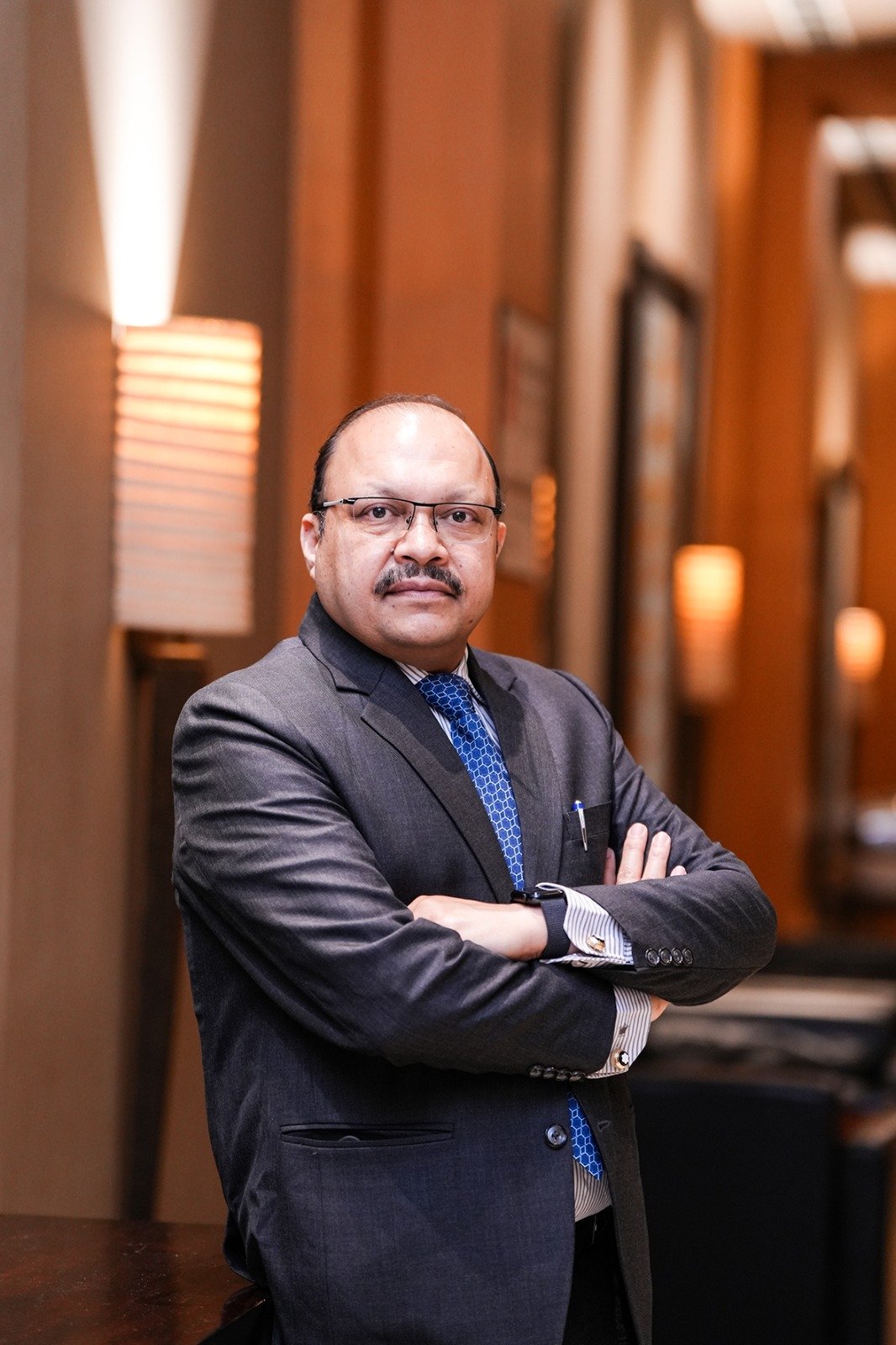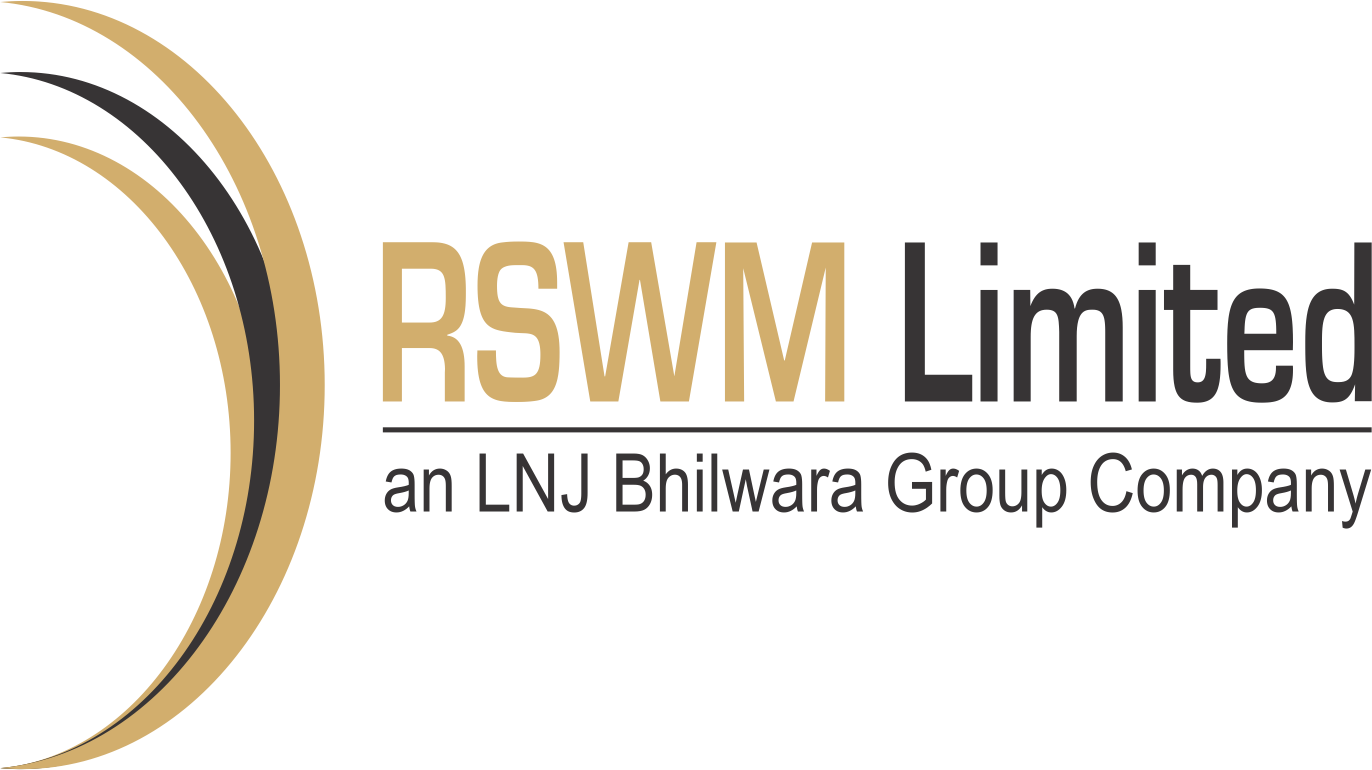Conversation with Mr. Rajeev Gupta, Joint Managing Director (JMD), RSWM Ltd, India

Mr. Rajeev Gupta serves as the Joint Managing Director (JMD) of RSWM Limited, the flagship company of the LNJ Bhilwara Group and one of India’s largest textile manufacturers. With over 30 years of extensive experience across the textile, home textile, and pulp & paper industries, Mr. Gupta is renowned for his strategic vision, operational expertise, and ability to drive transformative business growth.
In his current role, Mr. Gupta leads RSWM’s strategic initiatives, focusing on innovation, operational excellence, and sustainability. He is spearheading efforts to adopt advanced technologies, enhance efficiencies, and strengthen the company’s competitive position in both domestic and international markets. Under his leadership, RSWM is poised to achieve significant milestones in revenue growth, market expansion, and sustainable value creation for stakeholders.
Mr. Gupta has held senior leadership positions at leading organizations, including Reliance, Trident, Sutlej, and Vardhman, where he demonstrated exceptional capabilities in enhancing EBITDA, driving Lean and Six Sigma methodologies, and fostering innovation. His expertise in business turnaround strategies and process optimization has consistently delivered robust financial performance and elevated organizational benchmarks.
Mr. Gupta holds an MBA, where he was awarded the Gold Medal for academic excellence, and is also a Certified Cost and Management Accountant (CMA). His educational background has provided him with a solid foundation in business strategy, financial management, and operational leadership, further enhancing his ability to navigate complex challenges and deliver impactful results across various industries.
TextilesResources.com: You have more than three decades of experience in the textile industry. How has your journey been so far? Please share memorable experiences, achievements, and challenges.
Mr. Rajeev Gupta: My journey in the textile industry has been both fulfilling and transformative. Over the years, I’ve had the opportunity to work across every aspect of the value chain, from fibre to spinning, denim to knits, home textiles and exports to domestic markets. This has given me a unique vantage point to see how the industry has evolved. When I started, quality standards for domestic and international markets were very different. Today, they are at par, reflecting how far Indian textiles have come in terms of global acceptance and customer trust.
I consider myself fortunate to have learned from visionary leaders and promoters who shaped my understanding of business and management. Along the way, I have seen technology, sustainability, and quality become central to our growth. The adoption of modern practices, coupled with India’s rise as a trusted supplier to leading global brands, are milestones I look back on with pride. At the same time, challenges such as tariffs, changing trade dynamics, and market volatility have kept us on our toes. But that is the beauty of this sector; it makes you learn, adapt and innovate every single day.
TextilesResources.com: At RSWM Ltd., how do you adhere to sustainability, circularity, transparency, and traceability?
Mr. Rajeev Gupta: For us at RSWM, sustainability is not an isolated agenda, it is a way of doing business. Guided by the principle “we only take what we can give back”, every decision and review we undertake has sustainability as a core parameter. From the fuel we use to the fibres we choose, the commitment runs across the value chain.
We have invested deeply in renewable energy, with 74.36 MN KW of wind and solar power utilisation in our operations. Our boilers are being transitioned from coal to biofuels, a shift we aim to complete by FY 2026. Circularity is built into our processes, every day, we recycle around six million PET bottles into polyester fibre, which now makes up half of our polyester output. All our plants operate on zero liquid discharge, ensuring no wastewater leaves our premises, and some of the treated water is shared with nearby communities. Even our fibre and textile waste is recycled into yarn, while solid waste is converted into organic manure to support our green campuses.
Innovation ties all of this together. Our Panchtatva Initiative, launched at Bharat Tex 2025, reimagines textiles inspired by the five elements of nature, bringing together tradition, modern technology, and sustainability. Transparency and traceability are ensured through certifications and compliance frameworks, making our products globally trusted and future-ready.
TextilesResources.com: Your take on the current tariff rift and economic affairs, what is your strategy for RSWM Ltd.?
Mr. Rajeev Gupta: The tariff challenges, especially in the US, have created uncertainty for exporters across India and naturally, for us as well, since many of our customers serve those markets. While the sentiment has been cautious, I believe Indian textiles have a history of resilience. We adapt, we innovate, and we find ways to turn challenges into opportunities.
What gives us optimism is the progress on trade agreements. The India–UK FTA is already creating room for over a billion dollars in additional exports, and negotiations with the EU are also promising. These agreements align perfectly with RSWM’s strengths in ESG-ready products, recycled fibres, and sustainable fabrics. Our strategy has therefore been to diversify our markets, we are already present in 70+ countries, and focus more strongly on Europe, Africa, and the Middle East, while also strengthening our value-added portfolio of mélange yarns, premium knits, and denim.
The immediate impact of tariffs cannot be denied, but with government support and the perseverance of our industry, we are confident this will be temporary. India’s ability to manage ambiguity and bounce back has always been one of our strongest qualities.
TextilesResources.com: Expansion plans and roadmap for RSWM Ltd. and the LNJ Bhilwara Group going forward.
Mr. Rajeev Gupta: At this stage, RSWM is focused on consolidation and strategic growth under our RSWM 2.0 transformation. In the last two years, we have strengthened our base with the acquisition of Ginni Filaments’ spinning and knitting operations in Chhata, which added spinning and knitting capacity and enhanced our production. We have also invested in expanding our premium cotton yarn brand Kapaas and scaling up our knitted fabric vertical.
In denim, we have introduced sheet dyeing and are preparing to meet the growing demand for athleisure fabrics, which naturally complement the denim lifestyle. Our investments focus on building future-ready capabilities rather than merely expanding scale. At the Group level, our initiatives in clean energy reflect our commitment to sustainability and diversification. The roadmap for both RSWM and the LNJ Bhilwara Group is anchored in three pillars, strengthening the core, driving innovation, and embedding sustainability at every step.
TextilesResources.com: Kindly share current revenue, EBITDA, and other aspects of business performance, along with your improvement plan.
Mr. Rajeev Gupta: We closed the year with revenues of INR4,825 crore, a growth of nearly 19 percent year-on-year. EBITDA rose sharply by 77 percent to INR233 crore, reflecting better cost management and product mix improvements. While we reported a net loss of INR41 crore due to higher finance and depreciation costs, the trend reversed in the last quarter with a return to profitability at INR1.6 crore.
This momentum has carried into FY26. In the first quarter, we delivered a net profit of INR7 crore against a loss of INR13.7 crore last year. EBITDA surged 50 percent year-on-year to INR81 crore, with margins improving to 6.9 percent. These numbers reflect the impact of sharper financial discipline, leaner operations, and a stronger focus on higher-margin products.
Looking ahead, our plan is clear, strengthen cash flows, reduce overheads, and adopt Industry 4.0 technologies across the value chain. Every initiative is designed to make RSWM more agile, more profitable, and more resilient to external shocks.
TextilesResources.com: Your opinion on various schemes, initiatives, and vision of the Ministry of Textiles, Government of India, and your experience with the Bharat Tex trade show.
Mr. Rajeev Gupta: The Ministry of Textiles has been proactive in strengthening the sector through a series of well-structured schemes and initiatives. Programs like PM MITRA, PLI for textiles, Samarth, the National Technical Textiles Mission, and the Cotton Mission are addressing different aspects of the value chain. PM MITRA is expected to improve infrastructure and efficiency through world-class textile parks, while the PLI scheme is helping attract investments and promote exports in man-made fibres and technical textiles. The Samarth scheme continues to bridge skill gaps and improve employability, while the Cotton Mission is focused on revitalising India’s cotton sector with better quality and sustainable practices. The reinstatement of RoDTEP has also been a positive move for exporters. Taken together, these efforts reflect the government’s vision of making India a more competitive and future-ready textile hub.
Bharat Tex 2025 was a valuable experience, allowing us to showcase our Panchtatva Initiative and Spring Summer 2026 collections to a global audience. It enabled meaningful interactions with policymakers, peers, and buyers, highlighting the role of innovation and sustainability in textiles. The positive response has motivated us to advance our sustainability agenda, and we look forward to Bharat Tex 2026 to demonstrate progress, share ideas, and strengthen industry collaborations.
TextilesResources.com: Any message for industry professionals and readers of Textile Resources.
Mr. Rajeev Gupta: The textile industry is one of resilience and reinvention. My message to fellow professionals is to embrace change with confidence. Innovation, sustainability, and agility are no longer optional, they are essential. Those who adapt fastest to new sourcing norms, ESG expectations, and consumer demands will lead the next wave.
At RSWM, we see collaboration as the way forward. By building strong partnerships with customers, suppliers, and even competitors, we can create an ecosystem that benefits the entire industry. To young professionals, I would say, treat this sector as a place of continuous learning. Textiles are not just about yarns and fabrics, they are about weaving progress, responsibility, and opportunity for millions of lives. The future of our industry will be shaped by those who combine creativity with conscience.

